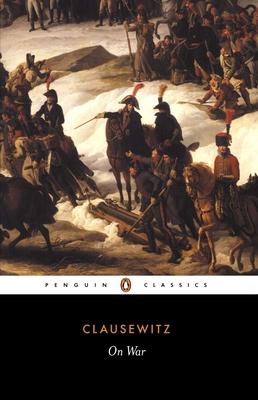'War is an act of violence intended to compel our opponent to our will'
Writing at the time of Napoleon's greatest campaigns, Prussian soldier and writer Carl von Clausewitz created this landmark treatise on the art of warfare, which presented war as part of a coherent system of political thought. In line with Napoleon's own military actions, Clausewitz illustrated the need to annihilate the enemy and to make a strong display of one's power in an 'absolute war' without compromise. But he was also careful to distinguish between war and politics, arguing that war could only be justified when debate was no longer adequate, and that if undertaken, its aim should ultimately be to improve the wellbeing of the nation. Combining military theory and pratice, On War has had a profound influence on subsequent thinking on warfare. This edition contains a detailed introduction examining Von Clausewitz's skill and reputation as a writer, philosopher and political thinker, as well as bibliography, notes and a glossary. For more than seventy years, Penguin has been the leading publisher of classic literature in the English-speaking world. With more than 1,700 titles, Penguin Classics represents a global bookshelf of the best works throughout history and across genres and disciplines. Readers trust the series to provide authoritative texts enhanced by introductions and notes by distinguished scholars and contemporary authors, as well as up-to-date translations by award-winning translators.
'War is an act of violence intended to compel our opponent to our will'
Writing at the time of Napoleon's greatest campaigns, Prussian soldier and writer Carl von Clausewitz created this landmark treatise on the art of warfare, which presented war as part of a coherent system of political thought. In line with Napoleon's own military actions, Clausewitz illustrated the need to annihilate the enemy and to make a strong display of one's power in an 'absolute war' without compromise. But he was also careful to distinguish between war and politics, arguing that war could only be justified when debate was no longer adequate, and that if undertaken, its aim should ultimately be to improve the wellbeing of the nation. Combining military theory and pratice, On War has had a profound influence on subsequent thinking on warfare. This edition contains a detailed introduction examining Von Clausewitz's skill and reputation as a writer, philosopher and political thinker, as well as bibliography, notes and a glossary. For more than seventy years, Penguin has been the leading publisher of classic literature in the English-speaking world. With more than 1,700 titles, Penguin Classics represents a global bookshelf of the best works throughout history and across genres and disciplines. Readers trust the series to provide authoritative texts enhanced by introductions and notes by distinguished scholars and contemporary authors, as well as up-to-date translations by award-winning translators.Paperback
$15.00